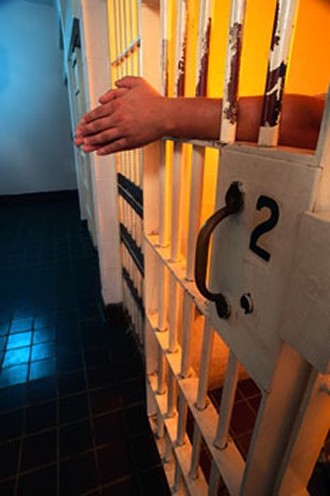| Statutory Rape & Unlawful Sexual Intercourse
California Penal Codes 261.5(c) & 261.5(d)
The law on the crime of statutory rape, also known as unlawful sexual intercourse, is found at California Penal Code Section 261.5(c) & 261.5(d). The crime of statutory rape or unlawful sexual intercourse may be chargued as a felony or as a misdemeanor in California. For purposes of this article we will refer to the crimes of statutory rape and unlawful sexual intercourse simply as statutory rape, which the most common name for this criminal charge.
In short, it is a crime in California for a person who is over the age of seventeen to have sexual intercourse with a person who is under the age of eighteen. The crime is known as statutory rape because it does not matter if the person who is under the age of eighteen consented to the sexual intercourse. The statute, or law, makes it a crime even if the parties consented to sexual intercourse.
Statutory rape committed between two people that are more than three years in age difference and is charged under PC 261.5(c), and statutory rape committed between two people where the age difference is more than three years is charged as PC 261.5(d). There are also special provisions and laws concerning statutory rape charges where the defendant is more than ten years older than the victim.
As you can imagine, the penalties for PC 261.5(c) are less severe than the penalties for PC 261.5(d), and the enhanced penalties for crimes of statutory rape with more than ten years difference in age are always charged as felonies.
This article deals with the penalties of PC 261.5(c) but otherwise the procedure and defenses for statutory rape under other statutory rape codes is the same.
Statutory rape crimes under California PC 261.5(c) may be charged as a felony or as a misdemeanor. If the defendant is convicted of felony statutory rape under PC 261.5(c) he or she may face up to three years in prison. If the defendant is convicted of misdemeanor statutory rape under PC 261.5(c) he or she may face up to one year in the county jail.
If found guilty of statutory rape under PC 261.5(c), either as a misdemeanor or as a felony, the defendant is not required to register as a sex offender for life pursuant to PC 290; however, the defendant may be ordered to register as a sex offender for the length of probation as a condition of probation.
The district attorney decides on whether to file PC 261.5(c) statutory rape charges as a felony or as a misdemeanor. When deciding whether to file felony or misdemeanor statutory rape charges the district attorney considers many factors, including the defendant's criminal history, the age difference between the parties, and the minor's role in the crime.
To prove that the defendant committed the crime of statutory rape (Penal Code 261.5(c) PC), all that the district attorney must prove is that the defendant had sexual intercourse with a person who is a minor.
A"minor" is a person under age eighteen (18). "Sexual Intercourse" means sexual penetration of the minor's vagina by the defendant's penis. If the minor is under the age of sixteen then usually the defendant will be charged with lewd acts or child molestation charges under PC 288 (See Child Molestation for more information)
Under PC 261.5(c), the district attorney does not have to prove that the minor did not give consent to sexual intercourse because a minor does not have the legal capacity to consent to sexual intercourse. This means that even if the minor actually consents to sexual intercourse the law deems the minor's consent to sexual intercourse as legally invalid and therefore there is no consent according to the law.
Defense to California Statutory Rape Charges (Penal Code 261.5(c)):
The defendant may properly defend against statutory rape charges under PC 261.5(c) if he can prove that he actually and reasonably believed the minor was over the age of eighteen (18) at the time of the intercourse. The burden of proving the defendant's reasonable mistake as to the age of the minor is on the defendant. The district attorney does not have to prove that the defendant did not reasonably believe that the minor was of age.
In addition, the defendant may properly defend against statutory rape charges if a certain amount of time has elapsed since the unlawful sexual intercourse with the minor occurred. This is known as the statute of limitations for statutory rape. For statutory rape the statute of limitation is one year for misdemeanor statutory rape cases and ten years from the date of the incident in felony statutory rape cases.
Finally, there is a defense to statutory rape charges filed under PC 261.5(c) if the district attorney cannot prove sexual penetration by the defendant. However, sexual penetration does not need to be proved by scientific evidence. The district attorney may prove sexual penetration through the testimony of the victim alone. The question is whether or not the jury actually believes the testimony of the statutory rape victim.
Additional Punishment for Statutory Rape Crimes:
The district attorney is authorized to bring an action to recover civil penalties against the defendant if he is convicted of statutory rape (Penal Code 261.5). The amount of the penalties depends on the age difference between the defendant and the minor and other factors (See Penal Code 261.5(e)(1), & 261.5(e)(2).
Statutory rape convictions under PC 261.5(c) could also lead to immigration consequence, enormous fines, probation or parole requirements, professional licensing restrictions, CPS and administrative hearings initiated, civil lawsuits by the minor, and more.
Note: The minor is not criminally liable for statutory rape under 261.5(c) even though the minor technically is an aider and abettor to the crime and even though the minor may have conspired to commit the crime; however, the minor may be criminally liable for a sexual intercourse as a minor under California Penal Code Section 261.5(b) (Misdemeanor Unlawful Sexual Intercourse).
To learn more about the crime of statutory rape and unlawful sexual intercourse under Penal Code 261.5(c) and 261.5(d), including defenses to statutory rape crimes, contact criminal defense attorney Christopher Dorado today!
909.913.3138
Also, Please visit our sister site at Criminal Defense Lawyers & Statutory Rape Crimes
|





